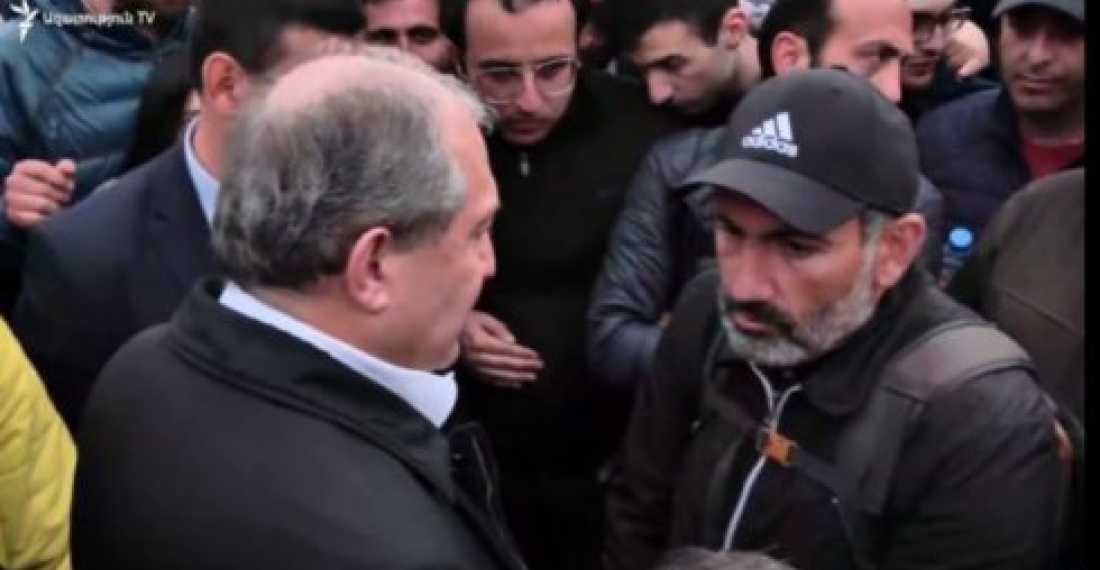It was a day full of dramtic scenes in Yerevan on Saturday (21 April) as large crowds thronged through the streets of the Armenian capital calling for the resignation of Armenian strongman Serzj Sargsyan from the office of Prime Minister. Sargsyan took over the role of prime minister earlier in the week days after his two terms in office as president of Armenia ended.
The Armenian authorities seem to have been taken by surprise by both the size of the protests, as well as by the methods of the protestors who marched in groups in different parts of Yerevan, blocking traffic and encouraging bystanders to join them.
Throughout the day police struggled to keep the main traffic arteries open, arresting hundreds of protestors. At one point the motorcade carrying the Armenian Defence Minister was also caught the the melee.
Whilst protestors gathered in the evening for what has become a daily end-of-day rally on Yerevan's main square, there was a surprise appearance by Armenia's newly appointed, but now largely symbolic President, Armen Sarkissian, who walked through the crowds for a ten minute tete a tete with the leader of the protestors, opposition MP Nikol Pashinyan. Pashinyan afterwards told his supporters that he had reiterated their demands for the resignation of prime minister Sargsyan as the main topic for any negotiations between government and protestors. He also said that any negotiations had to be held on neutral territory, proposing Armenia's Marriott Hotel, meters away from where the protests were taking place.
Early on Sunday morning, Armenia media, including those close to the government reported that talks have now been agreed and that Sargsyan and Pashanyan will meet on Sunday morning at the Marriott Hotel.
source: commonspace.eu
photo: Armenian President Armen Sarkissian talking to the leader of anti-government protests in Armenia Nikol Pashanyan during a surprise visit to opposition rally in an effort to broker talks between government and opposition on 21 April 2018 (picture courtesy of radio Free Europe/Radio Liberty)







